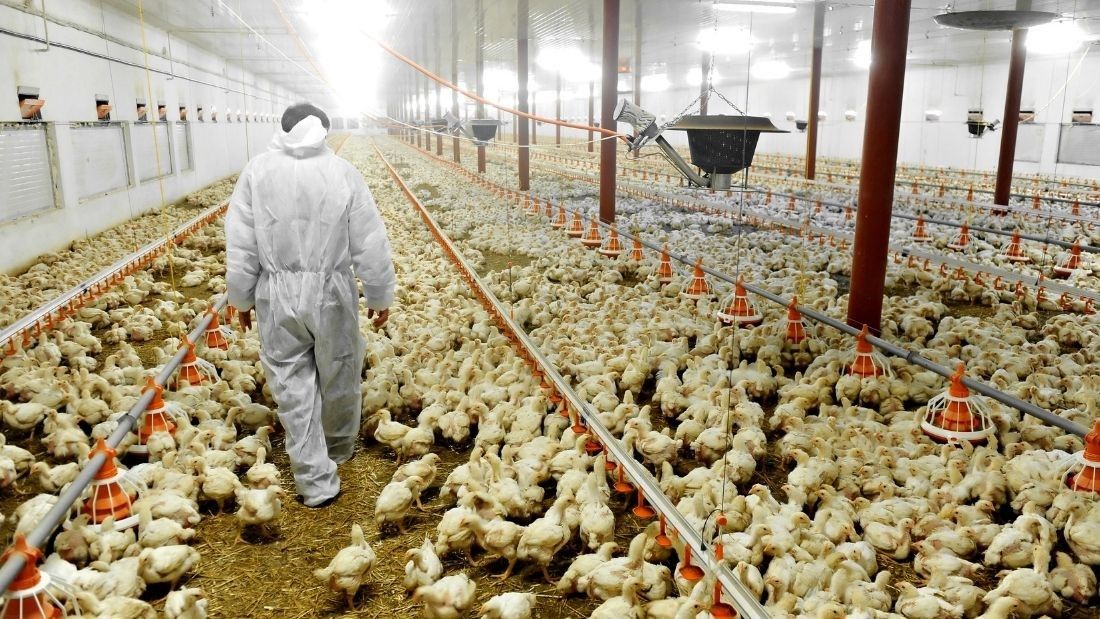The alarming spread of bird flu in the UK

There is a deadly infection spreading around the UK at unprecedented levels – avian influenza or bird flu.
In January 2022, it was announced that a person living in the southwest of England had caught bird flu. Experts say there was no evidence of onward spread and all close contacts of the person were monitored.
Avian influenza, also known as bird flu, is a type of flu that spreads among birds. Person-to-person transmission is rare, but when it does occur, fatality rates among those infected have been high (over 50 per cent).
In the UK’s largest-ever outbreak, the Animal & Plant Health Agency (APHA) are reporting new cases in captive birds almost daily. Since late October 2021, over 80 premises have been infected and more than two million birds have been culled to stop the spread of bird flu in the UK.
By comparison, there were less than 30 outbreaks in the UK during the entire previous winter. An Avian Influenza Prevention Zone (AIPZ), including strict biosecurity measures, came into force across Great Britain at the start of November 2021 and towards the end of the month was extended to require all birds (including free-range and backyard poultry) to be kept indoors.
The poultry industry likes to blame the spread of bird flu on migratory birds. Over 300 wild birds were found with the disease at more than 80 locations over the 2021 to 2022 winter.
Juliet Gellatley, founder and director of Viva! says: “The real problem is factory farming. Whilst wild birds undoubtedly contribute to the local spread of the virus in the wild, it is human commercial activities, particularly those associated with poultry, that are the major factors responsible for the global spread of bird flu.
“Large, industrial-sized units, housing tens of thousands of birds, provide the ideal environment for infectious diseases to spread and mutate. Viva! have been into these hellholes and exposed the horrific conditions these birds are forced to endure during their short lives.
“Over one billion chickens are slaughtered for their meat in the UK every year and around 95 per cent are intensively reared on factory farms. There are 24 billion chickens in the world – more than three birds for every single person on the planet. Whichever way you look at it, domesticated poultry are massively over-represented among the world’s bird population.”
The rate of spread in the UK is expected to continue but no one knows why it’s getting worse each winter. Speaking on BBC Radio 4’s Today programme Chief Veterinary Officer of the UK, Christine Middlemiss, said: “I am very concerned about what’s happening” as the disease continues to hit more poultry farms and bird sanctuaries.
Avian influenza viruses are among the most dangerous viruses that can affect humans. In people, H5N1 has a case fatality rate of around 50 per cent. Seasonal flu kills around 0.1 per cent (one in 1,000) of those infected. Luckily, H5N1 is not easily caught or spread between humans, yet! There have been a handful of person-to-person infections among families caring for sick relatives and scientists are concerned. We’ve all seen how viruses mutate – the Omicron variant of the SARS-CoV-2 virus, for example, is much more transmissible than the Delta variant.
Senior public health expert at the World Health Organisation, David Nabarro, warned that should it mutate and become more transmissible, a pandemic caused by H5N1 could result in a death rate of anywhere between five and 150 million people.
Writing in the journal Emerging Infectious Diseases, scientists said: “If this virus acquires human-to-human transmissibility with its present fatality rate of 50 per cent, the resulting pandemic would be akin to a global tsunami. If it killed those infected at even a fraction of this rate, the results would be catastrophic.”
Viva! says it’s time to End Factory Farming before it ends us!




